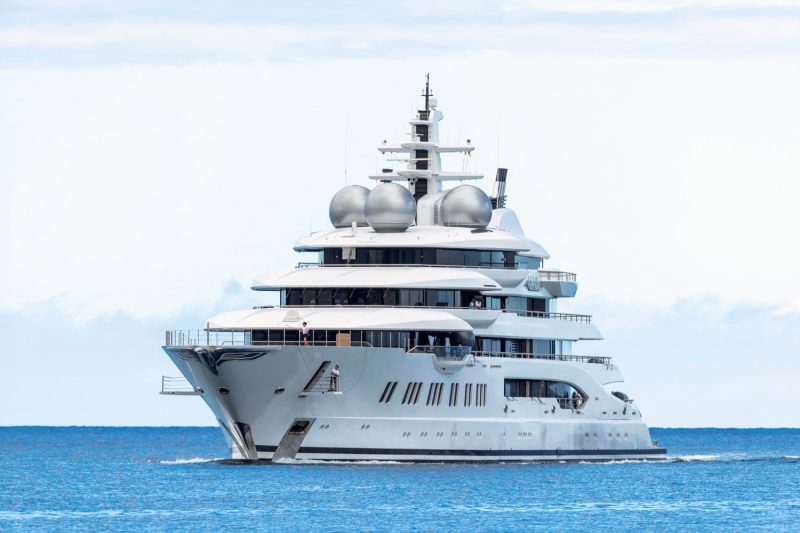
Russian oligarch’s yacht costs U.S. taxpayers close to $1 million a month
A mega-yacht seized by U.S. authorities from a Russian oligarch is costing the government nearly $1 million a month to maintain, according to new court filings.
The U.S. Department of Justice is seeking permission to sell a 348-foot yacht called Amadea, which it seized in 2022, alleging that it was owned by sanctioned Russian billionaire Suleiman Kerimov. The government said it wants to sell the $230 million yacht due to the “excessive costs” of maintenance and crew, which it said could total $922,000 a month.
“It is excessive for taxpayers to pay nearly a million dollars per month to maintain the Amadea when these expenses could be reduced to zero through [a] sale,” according to a court filing by U.S. prosecutors on Friday.
The monthly charges for Amadea, which is now docked in San Diego, California, include $600,000 per month in running costs: $360,000 for the crew; $75,000 for fuel; and $165,000 for maintenance, waste removal, food and other expenses. They also include $144,000 in monthly pro-rata insurance costs and special charges including dry-docking fees, at $178,000, bringing the total to $922,000, according to the filings.
The battle over Amadea and the costs to the government highlight the financial and legal challenges of seizing and selling assets owned by Russian oligarchs after the country’s invasion of Ukraine. European Commission President Ursula von der Leyen said last week that the European Union should use profits from more than $200 billion of frozen Russian assets to fund Ukraine’s war effort.
Her comments echoed government calls in the spring of 2022 to freeze the yachts, private jets and mansions of Russian billionaires in hopes of putting pressure on Russian President Vladimir Putin and raising money for the war effort.
Yet, nearly two years later, the legal process for proving ownership of the Russian assets and selling them has proven to be far more time-consuming and costly. In London, Russian billionaire Eugene Shvidler has waged a court battle over his private jets that were impounded, and Sergei Naumenko has been appealing the detention of his superyacht Phi.
The battle over Amadea began in April 2022, when it was seized in Fiji at the request of the U.S. government, according to the court filings.
Though the U.S. alleges that the yacht is owned by Kerimov, who made his fortune in mining, attorneys for Eduard Khudainatov, an ex-Rosneft CEO who has not been sanctioned, say he owns the yacht, and have sought to take back possession of the vessel.
In court filings, Khudainatov’s attorneys have objected to the U.S. government’s efforts to sell the yacht, saying a rushed sale could lead to a distressed sale price and that the maintenance costs are minor relative to the potential sale value.
Khudainatov’s attorneys refuse to pay the ongoing maintenance costs as long as the government pursues a sale and forfeiture. However, they say their client will reimburse the U.S. government for the more than $20 million already spent to maintain the yacht if it’s returned to its proper owner.
In court papers, the government says Kerimov disguised his ownership of Amadea through a series of shell companies and other owners. They say emails between crew members show Kerimov “was the beneficial owner of the yacht, irrespective of the titleholder of the vessel.”
The emails show that Kerimov and his family ordered several interior improvements of the yacht, including a new pizza oven and spa, and that between 2021 and 2022, when the boat was seized, “there were no guest trips on the Amadea that did not include either Kerimov or his family members,” according to the court filings.
The government also says Kerimov has been trying to sell Amadea for years, so a sale would be in keeping with his intent.
“This is not a situation in which a court would be ordering sale of a precious heirloom that a claimant desperately wishes to keep for sentimental reasons,” the government said in filings.
Even if Amadea were sold quickly, the proceeds wouldn’t automatically go to the government. Under law, the money would be held while Khudainatov and the government continue their battle in court over the ownership and forfeiture.
